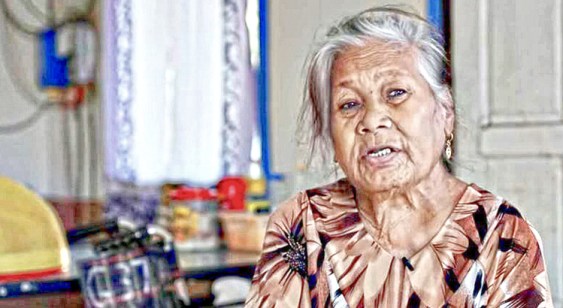
EVE BURNS
Nerje Joseph, 74, who died recently at Majuro hospital, was one of a dwindling number of Rongelap Islanders who were on Rongelap or Ailinginae on March 1, 1954 when the US government detonated the Bravo hydrogen bomb at Bikini. Bravo spewed a snowstorm of radioactive fallout on Nerje and the other 85 people on these two downwind atolls at the time.
She was buried this past Friday in the Arrak area of Majuro.
Nerje was seven when Bravo was tested. Today, of the 86 people on Rongelap in 1954, only 16 are still alive.
In her adult life, Nerje became an advocate for nuclear victims and was sought out by International media for interviews.
Nerje lived with health complications: From her initial exposure to nuclear test fallout, she suffered from skin burns and hair loss. Later in life, she experienced miscarriages and developed thyroid cancer — a problem that affected many of the original Rongelap people exposed to Bravo fallout.
National Nuclear Commission Education and Public Awareness Director Ariana Tibon, who visited with her in recent years, said of Nerje: “She was a humble bubu (grandmother), so sweet and was always smiling despite all she had experienced.”
Many journalists interested in the Marshall Islands nuclear test legacy who traveled to the Marshall Islands interviewed her and shared her story to the world. Her last film interview was done for documentary by Wendover Productions in January 2020, just before the RMI locked down. The hour-long film, which is titled “The Final Years of Majuro” begins with a dialogue by former President Christopher Loeak, and includes the interview with Nerje*.
Nerje was often seen outside Rongelap Atoll Local Government office building, smiling and greeting people who came to the office. She was always helpful in pointing out which room each worker was in and was always making sure that Rongelapese were getting what they needed from the office. She often talked about how much she missed her home islands, and how she felt limited living here, on an atoll that she was not from. She was a strong voice for nuclear victims.
- “The Final Years of Majuro,” which was directed by Sam Denby and co-produced by Karen Earnshaw, can be viewed on her website at: https://www.infomarshallislands.com/the-final-years-of-majuro/

